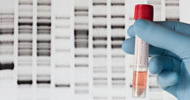Description
Enabling Rapid Production of Human Multi-protein Complexes using BaculovirusCambridge, UK: TAP Biosystems, a leading supplier of innovative cell culture systems and consumables for life science applications, today announced its advanced micro bioreactor system (ambr™) is in use at the European Molecular Biology Laboratory (EMBL) in Grenoble, France, one of the world’s leading structural biology research institutes, for rapid small-scale parallel expression of human multi-protein complexes using baculovirus.
The ambr micro bioreactor system at EMBL, which was funded by the French Investissement d'Avenir Initiative is being used by EMBL scientists in the Eukaryotic Expression Facility (EEF) for culturing insect cells containing baculovirus expression systems to produce differently engineered human multi-protein complexes for crystallography studies. These protein complexes are being assessed to determine the architecture of protein cascades and pathways that lead to human disease states. Researchers at EMBL believe that determining these pathways will ultimately reveal pivotal points where protein complexes could be of interest in drug discovery, or as a novel class of therapeutics.
Dr Imre Berger, Group Leader, in the EEF explained: “We use baculovirus because it ensures correct expression and solubility of multi-protein complexes, as well as provides sufficient protein for crystallisation. We need to study large numbers of protein complex variants and had been using shake flasks to do this. However, this type of manual culture method is not practical for us as it is time consuming and almost impossible to evaluate many variants in parallel. So we decided last year to automate the process and when we saw the ambr system we realised that the new ambr workstation with active cooling could help to streamline multi-protein expression and accelerate our research.”
Berger added: “Our difficulty is that using baculovirus and insect cells is not like working with CHO [Chinese Hamster Ovary] cells. The cells require lower growth temperatures, and you have to add baculovirus at a specific time point for successful infection. The new ambr version overcomes these issues, allowing us to grow our insect cells at 27ºC and carry out automated virus additions. TAP’s application specialists have worked with us,
showing us how to use the software to monitor cell growth during culture, and set up optimal automated infection timing. We are very happy with using ambr for baculovirus expression in insect cells. Miniaturizing baculovirus expression with the ambr is now an integral part of the ComplexINC research programme and it will have a significant impact on the pace of our work.”
Dr Barney Zoro, ambr Product Manager at TAP Biosystems concluded: "We’re delighted that this world leading research institute has chosen ambr and has, for the first time, successfully proven insect cell growth and protein expression in ambr. Their research demonstrates that ambr can facilitate small scale rapid parallel production of large sets of multi-protein complexes with baculovirus, and may potentially help uncover new targets for use in future drug discovery programmes, or even a novel class of protein therapeutics.”














































